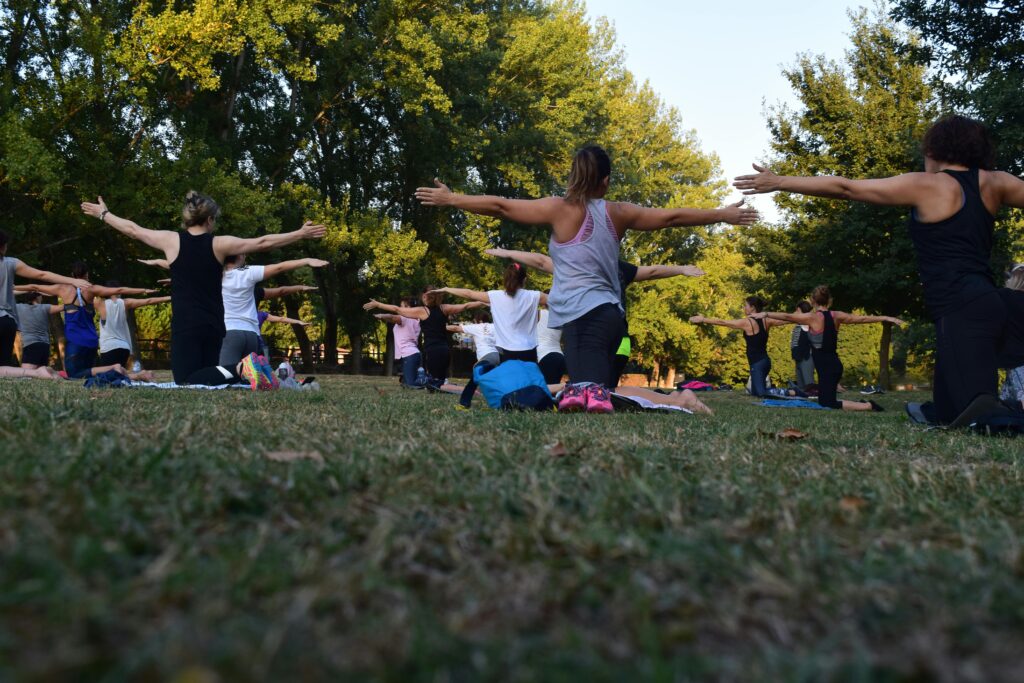Unraveling the Mysteries of Sleep Disorders
Introduction
Sleep is a fundamental pillar of human existence, crucial for maintaining physical health, cognitive sharpness, and emotional equilibrium. Yet, for many, the quest for a good night’s rest often proves elusive due to the presence of sleep disorders. These disorders encompass a spectrum of conditions disrupting the natural sleep cycle, manifesting as difficulties in initiating sleep, sustaining it, or experiencing its rejuvenating effects. This essay is an attempt to delve into the intricacies of sleep disorders, dissecting their causes, classifications, and avenues for resolution.
Lifestyle Pattern
Among the foremost catalysts for sleep disorders lie lifestyle choices. In our contemporary rat race, sleep frequently takes a backseat to professional commitments, social obligations, and screen time indulgences. Erratic sleep patterns, excessive caffeine consumption, and prolonged exposure to electronic screens can all throw the body’s circadian rhythm off-kilter, paving the way for insomnia and allied sleep disturbances. Moreover, the omnipresent specter of stress and anxiety casts a long shadow over restful slumber, with elevated cortisol levels exacerbating sleep onset difficulties.

Environmental Factors
Environmental factors like noise pollution, temperature extremes, and suboptimal sleeping conditions can exacerbate sleep disturbances. Genetic predispositions may also confer susceptibility to certain sleep disorders, underscoring the intricate interplay between heredity and environmental stimuli.

Key Sleep-Related Disorders
Sleep-related disorders encompass a wide range of conditions that can disrupt the quality, duration, and timing of sleep, leading to significant impacts on overall health and well-being. Amongst many disorders related to sleep, below mentioned are some of the key disorders that most of us experience in our daily lives.
- Insomnia: Characterized by difficulty falling asleep or staying asleep. It can be short-term (acute) or long-term (chronic), and it may be caused by stress, anxiety, depression, medications, or other medical conditions. Read More…
- Sleep Apnea: A condition where breathing repeatedly stops and starts during sleep. There are two main types: obstructive sleep apnea, caused by a blockage of the airway, and central sleep apnea, caused by a malfunction in the brain’s signaling. Read More…
- Narcolepsy: A neurological disorder characterized by excessive daytime sleepiness, sudden episodes of muscle weakness (cataplexy), hallucinations, and sleep paralysis. Read More…
- Restless Legs Syndrome (RLS): An irresistible urge to move the legs, usually due to discomfort or unpleasant sensations, often worsened during periods of inactivity or at night.
- Periodic Limb Movement Disorder (PLMD): Involuntary movements of the legs or arms during sleep, which can disrupt sleep and cause daytime sleepiness or fatigue.
- Parasomnias: Abnormal behaviors or movements during sleep. Examples include sleepwalking, sleep talking, nightmares, and night terrors.
- Circadian Rhythm Disorders: Disruptions in the body’s internal clock, leading to difficulties falling asleep, staying asleep, or waking up at the desired times. Examples include jet lag, shift work sleep disorder, and delayed sleep phase disorder.
- Hypersomnia: Excessive daytime sleepiness despite getting enough sleep at night. It can be caused by various underlying medical conditions or medication side effects.
- REM Sleep Behavior Disorder (RBD): A condition where individuals act out vivid dreams during REM (rapid eye movement) sleep, potentially causing harm to themselves or their sleep partners.
- Sleep-Related Movement Disorders: Other conditions that involve abnormal movements during sleep, such as bruxism (teeth grinding), rhythmic movement disorder, or sleep-related leg cramps.

Key Sleep-Related Chronic Conditions
- Diabetes is a multifaceted condition affecting millions globally, demanding vigilant management of blood sugar levels. Whether grappling with type 1’s autoimmune complexities or type 2’s lifestyle implications, the journey is profound. However, armed with knowledge, proactive lifestyle choices, and ongoing support, individuals with diabetes can lead fulfilling lives. Embracing balanced nutrition, regular exercise, and emerging technologies for monitoring and treatment, they navigate towards optimal health. Diabetes isn’t just a diagnosis; it’s a call to action for empowerment, resilience, and a commitment to wellness. Together, let’s redefine the narrative, turning challenges into opportunities for growth and vitality.
- Obesity, a prevalent global health concern, extends beyond physical appearance to impact overall well-being profoundly. With sedentary lifestyles and unhealthy dietary habits on the rise, obesity rates soar, bringing forth a plethora of associated health risks such as cardiovascular diseases, diabetes, and certain cancers. However, combating obesity requires more than just shedding pounds; it necessitates a holistic approach encompassing mindful eating, regular physical activity, and mental well-being. Embracing a balanced lifestyle with nutritious food choices and sustainable exercise routines is pivotal. Let’s foster a culture where health takes precedence, empowering individuals to reclaim vitality and thrive in their bodies with confidence and vitality.
- Cardiovascular disease stands as a formidable adversary to global health, claiming millions of lives annually. From coronary artery disease to stroke, its impact reverberates through every corner of society. Lifestyle factors such as poor diet, sedentary behavior, smoking, and stress contribute significantly to its prevalence. Yet, the journey towards heart health isn’t hopeless. Through education, awareness, and proactive lifestyle choices—like adopting a heart-healthy diet rich in fruits, vegetables, and whole grains, coupled with regular exercise and stress management—we can mitigate risk factors and promote cardiovascular wellness. Let’s unite in the fight against heart disease, prioritizing health and vitality for all.
- Hypertension, commonly known as high blood pressure, silently poses a significant threat to global health. Often asymptomatic, it stealthily damages blood vessels, increasing the risk of heart disease, stroke, and other complications. Lifestyle choices such as excessive salt intake, lack of physical activity, and stress exacerbate this condition. However, the power to manage hypertension lies in proactive measures. By adopting a heart-healthy diet low in sodium, engaging in regular exercise, managing stress, and adhering to prescribed medications, individuals can take control of their blood pressure and safeguard their cardiovascular health. Let’s prioritize awareness and action to combat hypertension and promote vitality.
- Anxiety, a common mental health challenge, manifests through various symptoms, both physical and psychological. Racing thoughts, excessive worry, and restlessness often accompany feelings of impending doom or panic attacks. Physiological signs like rapid heartbeat, sweating, trembling, and shortness of breath can be debilitating. Sleep disturbances, difficulty concentrating, and muscle tension further disrupt daily life. Recognizing these symptoms is crucial for early intervention. Seeking support from mental health professionals, practicing mindfulness techniques, and maintaining a healthy lifestyle can help manage anxiety effectively. Let’s foster understanding and compassion, creating spaces where those affected feel empowered to navigate their journey towards peace and well-being.
- Depressed mood, a hallmark of depression, casts a shadow over daily life, coloring experiences with a sense of emptiness and despair. It encompasses a range of emotions, from persistent sadness and hopelessness to irritability and loss of interest in once-enjoyable activities. Sleep disturbances, changes in appetite, and difficulty concentrating further disrupt functioning. Despite its invisible nature, the impact of depressed mood reverberates through relationships, work, and overall well-being. Acknowledging these feelings is the first step towards healing. Seeking support from loved ones and mental health professionals, practicing self-care, and exploring therapeutic interventions are vital in navigating the journey towards recovery and reclaiming a sense of vitality.
- Alcohol Abuse: Sleep disorders can often become entangled with alcohol abuse, forming a vicious cycle detrimental to overall well-being. Conditions like insomnia or sleep apnea disrupt restorative sleep, prompting individuals to seek relief through alcohol, which initially induces drowsiness. However, alcohol’s impact on sleep quality is paradoxical, leading to fragmented sleep patterns and worsening of sleep disorders over time. Moreover, reliance on alcohol to induce sleep can escalate into dependency and abuse, exacerbating both sleep disturbances and overall health. Breaking this cycle requires addressing underlying sleep issues through proper diagnosis and treatment, coupled with mindful approaches to alcohol consumption. Let’s prioritize holistic strategies for sleep health and sobriety, fostering a foundation of well-being.

Positive Outlook
Making positive lifestyle changes can often alleviate insomnia, a condition that ranges from temporary bouts lasting a few days to persistent cases extending over three months or more. Seeking medical advice if insomnia persists beyond a few weeks is advisable.
Having a strategy for managing sleeplessness can be immensely helpful. Options include staying in bed and focusing on relaxation without pressuring oneself to sleep, relocating to a different room for a calming activity, or engaging in a more stimulating and productive task. Experimentation is key to discovering what method works best for individual needs.
Maintaining a sleep journal offers insights into potential triggers for insomnia. By diligently documenting nightly routines, dietary intake, and medication usage, patterns and correlations may emerge, aiding in the identification of factors contributing to sleep disturbances.

Home Remedies for Sleep Deprivation
Engaging in practices such as mindfulness meditation and incorporating supplements like magnesium into your routine may facilitate better sleep quality. However, if these methods fail to alleviate your symptoms, seeking assistance from a healthcare professional may be beneficial.
Short-term insomnia is a prevalent sleep disorder characterized by difficulties in falling and staying asleep until the desired waking time. While individual sleep requirements vary, most adults typically necessitate a minimum of seven hours of sleep per night for optimal functioning. If disruptions in your sleep patterns are adversely impacting your overall well-being, exploring various home remedies could offer relief.
By continuing to explore, you can discover effective strategies for managing your sleep patterns. Techniques such as meditation, regular exercise, and other home-based interventions hold promise in promoting restful sleep. Taking proactive steps to address your sleep concerns empowers you to reclaim control over your sleep health and enhance your overall quality of life.
1. Meditation
- Engaging in mindfulness meditation involves the deliberate act of slowing down, focusing on the rhythm of your breath, and quietly observing the sensations that arise within your body, as well as the thoughts and emotions that come and go.
- The benefits of mindfulness meditation are manifold, aligning perfectly with a lifestyle aimed at fostering good sleep and overall well-being. It’s lauded for its ability to alleviate stress, enhance concentration, and bolster the immune system.
- Supported by research, a 2011 study demonstrated significant improvements in insomnia and overall sleep quality among participants who engaged in regular meditation practices. This involved attending meditation classes, participating in daylong retreats, and maintaining a consistent home practice over several months.
- The frequency of meditation sessions is flexible, allowing individuals to integrate it into their daily routine. Even brief sessions of 15 minutes in the morning or evening can yield benefits. Joining a meditation group on a weekly basis can provide additional motivation and support, while online guided sessions offer convenience and structure.
- While meditation is generally safe, it’s important to acknowledge its potential to evoke strong emotions. If the practice exacerbates feelings of distress or unease, it’s advisable to pause or seek guidance from a qualified instructor.

2. Yoga
- Engaging in yoga practice has been scientifically proven to positively impact sleep quality, while also serving as a potent stress reliever, enhancer of physical functionality, and promoter of mental clarity. Opting for yoga styles emphasizing moving meditation or breathwork over physically demanding postures can enhance the experience, fostering a deeper sense of presence and concentration. Styles such as Yin and restorative yoga are particularly conducive to this approach.
- Consistency is key in reaping the benefits of yoga, aiming for several longer sessions weekly alongside a daily commitment of at least 20 minutes for self-practice. Incorporating yoga into your pre-bedtime routine can facilitate relaxation and promote a restful sleep.
- It’s imperative to listen to your body during practice. If a posture feels uncomfortable or strained, it’s advisable to refrain from forcing it, as doing so may lead to injury. Each individual’s body is unique, and what feels right varies from person to person. Prioritizing comfort and alignment ensures a safe and gratifying yoga experience.

3. Mantra Chanting
- Engaging in the practice of repeating a mantra or positive affirmation can significantly aid in centering and calming the mind. Mantras, through their repetitive recitation, have the power to induce a state of relaxation by quieting the incessant chatter of the mind.
- A notable study conducted in 2015 involved teaching homeless women to silently repeat a mantra throughout their day and before bedtime. Remarkably, those who adhered to this practice for just a week reported notable reductions in insomnia levels.
- Whether you opt for a mantra in Sanskrit, English, or any other language, the key is to select one that resonates with you on a deep level. It should exude positivity and simplicity, facilitating a sense of tranquility and ease. By focusing on the rhythmic repetition of the mantra, you can effectively steer your mind towards a state of relaxation conducive to sleep.
- Whether uttered silently or aloud, the mantra serves as a focal point to tether wandering thoughts. Should any discomfort or agitation arise during the chanting, it is imperative to listen to your body and discontinue the practice if necessary. Embrace the flexibility to experiment with different mantras until you find the one that harmonizes perfectly with your being.

4. Regular Exercise
- Physical Health Benefits: Regular exercise maintains healthy body weight, reduces chronic disease risks, strengthens the heart, improves circulation, and boosts immune function.
- Mental Health and Cognitive Benefits: Exercise stimulates endorphin release, reducing stress, anxiety, and depression. It enhances cognitive function, memory, concentration, and neuroplasticity, guarding against age-related cognitive decline.
- Enhanced Quality of Life: Exercise increases energy levels, improves sleep quality, and enhances self-esteem. It fosters social connections, promoting a sense of belonging and fulfillment beyond physical health benefits.
- Longevity and Aging Gracefully: Active lifestyles contribute to longevity and graceful aging by preserving muscle mass, bone density, and joint flexibility. Regular exercise mitigates age-related ailments such as osteoarthritis, sarcopenia, and osteoporosis.
- Sustainable Habit Formation: Establishing a habit of regular exercise cultivates discipline, resilience, and self-care habits. Consistency is key, with small, enjoyable activities laying the foundation for lifelong health and wellness.

5. Drink Up
- While scientific evidence may not strongly support the effectiveness of nighttime drinks for improving sleep, there’s no harm in giving them a try, according to experts like Dr. Gamaldo. Patients seeking treatment without worrying about side effects or drug interactions often find these drinks worth experimenting with.
- Warm milk has a longstanding reputation for its potential sleep-inducing properties. It contains substances that mimic tryptophan’s effects on the brain, a precursor to serotonin, a neurotransmitter involved in regulating the sleep-wake cycle.
- Similarly, chamomile tea is believed to contain flavonoids that interact with benzodiazepine receptors in the brain, aiding in the sleep process. Unlike caffeinated options such as green or Earl Grey tea, chamomile won’t disrupt sleep patterns.
- Tart cherry juice is another popular choice, potentially supporting melatonin production, a hormone vital for regulating sleep cycles. Incorporating these drinks into a nightly routine may provide a natural and soothing way to prepare the body for sleep.
- While individual responses may vary, these beverages offer a gentle and accessible approach to promoting relaxation and improving sleep quality, making them worth considering for those seeking non-pharmacological solutions.

6. Melatonin Supplements
- The importance of melatonin in regulating sleep cycles cannot be overstated. This hormone, naturally released by the brain approximately four hours before bedtime, plays a vital role in inducing feelings of sleepiness. Its release is triggered by the body’s response to decreased exposure to light, a signal that it’s time to wind down for the night.
- In today’s modern world, however, artificial light sources such as phones, laptops, and TVs disrupt this natural process by inhibiting melatonin release. This prolonged exposure to unnatural light can make it challenging for many individuals to fall asleep at night.
- Thankfully, melatonin supplements are widely available over the counter at local pharmacies. These supplements can help regulate sleep patterns by providing the body with the melatonin it needs to initiate the sleep process. However, it’s important to exercise caution when selecting melatonin supplements.
- Since melatonin supplements are not regulated by the FDA, the dosage and ingredients may vary between different brands. To ensure consistency and safety, it’s advisable to stick with one reputable brand and avoid purchasing from unknown online sources.
- By prioritizing sleep hygiene and incorporating melatonin supplements from trusted sources, individuals can mitigate the negative effects of artificial light exposure and improve their overall sleep quality. This approach offers a practical solution for addressing the challenges posed by modern lifestyles on sleep patterns.

7. Massage Routine
- In our fast-paced world, sleep deprivation has become an all too common affliction, affecting millions worldwide. Yet, amidst the array of remedies, one often overlooked solution stands out: massage therapy. Beyond mere relaxation, massage offers a holistic approach to combating sleep deprivation, addressing both physical and psychological factors that disrupt restful sleep.
- Incorporating regular massage sessions into one’s wellness routine can significantly improve sleep quality and duration, leading to enhanced overall well-being. As we prioritize self-care in our quest for better sleep, let us not overlook the profound benefits that massage therapy offers in our journey towards restful nights and rejuvenated mornings.
- Massage promotes relaxation by reducing muscle tension and relieving stress, two primary contributors to sleep disturbances. The gentle pressure applied during a massage stimulates the release of endorphins, neurotransmitters known for their calming effect on the body, paving the way for a more peaceful slumber.

8. Go Dark
- Going dark, or reducing exposure to artificial light sources, has been increasingly recognized as a crucial strategy for combating sleep deprivation. In our modern era dominated by screens and artificial illumination, the natural rhythms of sleep can easily be disrupted, leading to chronic sleep deficits. When we intentionally dim the lights or turn off electronic devices before bedtime, we signal to our bodies that it’s time to wind down and prepare for rest.
- In essence, embracing darkness as part of our sleep hygiene routine can serve as a potent antidote to the pervasive problem of sleep deprivation in our modern society. By acknowledging the importance of darkness in promoting healthy sleep patterns, we can reclaim control over our rest and vitality.
- The absence of light triggers the production of melatonin, a hormone that regulates sleep-wake cycles. By going dark, we facilitate the body’s natural response to darkness, promoting deeper and more restorative sleep. Studies have shown that individuals who adopt a “lights out” approach experience improved sleep quality and duration compared to those who remain exposed to artificial light sources.

9. Use of Magnesium
Magnesium, a vital mineral involved in numerous bodily functions, has gained attention for its potential role in improving sleep quality. Research suggests that magnesium plays a crucial role in regulating neurotransmitters involved in sleep, such as GABA, which has calming effects on the brain. By modulating GABA activity, magnesium can help quiet the mind and promote relaxation, facilitating the onset of sleep.- Incorporating magnesium-rich foods such as nuts, seeds, leafy greens, and whole grains into one’s diet or taking magnesium supplements under the guidance of a healthcare professional may offer a natural and effective solution for improving sleep quality. However, it’s essential to maintain a balanced approach and consider magnesium as part of a comprehensive sleep hygiene regimen.
- Additionally, magnesium is involved in the regulation of melatonin, the hormone responsible for signaling the body when it’s time to sleep. Adequate magnesium levels have been linked to higher melatonin production, leading to more robust sleep-wake cycles.
- Furthermore, magnesium deficiency has been associated with insomnia and other sleep disturbances. Supplementing with magnesium may help address this deficiency and alleviate sleep-related issues.

Conclusion
In summation, sleep disorders pose formidable hurdles to holistic well-being, impinging upon various facets of existence. Understanding the etiology, taxonomy, and management modalities of sleep disorders is paramount for cultivating healthy sleep hygiene and enhancing overall quality of life. By addressing root causes precipitating sleep disruptions and embracing tailored interventions, individuals can embark on the journey toward restorative and invigorating sleep, fostering physical vigor, mental acuity, and emotional equilibrium.
Disclaimer
- Before delving into any health-related changes or decisions, it’s imperative to emphasize the importance of consulting a qualified physician or healthcare provider. While the information provided here may offer insights and suggestions, it is not a substitute for professional medical advice, diagnosis, or treatment.
- Every individual’s health profile is unique, and what works well for one person may not be suitable for another. A physician can assess your medical history, current health status, and any potential risk factors to provide personalized guidance tailored to your needs.
- Furthermore, self-diagnosis and treatment without proper medical supervision can pose significant risks. Certain health conditions may require specific interventions or medications that only a healthcare professional can prescribe safely.
- Moreover, the information presented here is based on general knowledge and research available at the time of writing. Medical science is continually evolving, and new findings may emerge that could impact the relevance or applicability of the information provided.
- Therefore, it is essential to approach any health-related decisions with caution and to seek guidance from a trusted healthcare professional. Your physician is your partner in health, and consulting them ensures that you receive the best possible care tailored to your individual circumstances.


